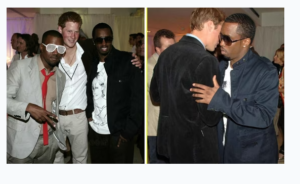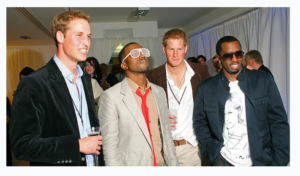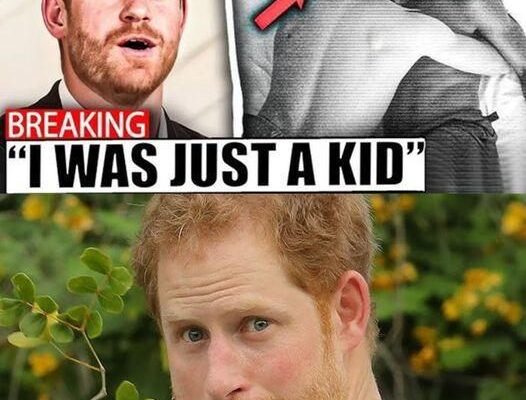Shawn “Diddy” Combs, once an indomitable force in the music industry, has
recently found himself embroiled in a web of scandals that threaten to dismantle his
decades-long legacy. As Diddy adapts to life in a new home-his legal troubles
intensifying-it becomes increasingly clear that the controversies surrounding him
are multifaceted, intertwining celebrity culture, legal battles, and even conspiracy
theories that draw in unexpected figures like Prince Harry.
Diddy, known for his contributions to hip-hop through his Bad Boy Records label,
now faces serious allegations, including sex trafficking and racketeering. These
charges stem from disturbing claims by various individuals, including both
high-profile and lesser-known personalities, who accuse him of abusive behavior at
extravagant parties. The recent arrest of Diddy at a Manhattan hotel has only
amplified scrutiny of his actions, as the legal system begins to unravel the complex
narrative of his life.

Amidst these serious allegations, a resurfaced interview from 2011 with British talk
show host Graham Norton has taken on a new, unsettling context. During this
interview, Diddy jokingly invited Prince Harry and his brother, Prince William, to his
infamous parties, a comment that elicited laughter at the time. However, in light of
Diddy’s current legal predicaments, those light-hearted remarks now carry a weight
of discomfort, leading many to reevaluate past interactions. Old photos from events
like the 2007 Concert for Diana, where Diddy was seen with the young princes, have
resurfaced, igniting further speculation about any potential connections between
the rapper and the British royal family.
The public’s reaction to these developments has been one of disbelief and intrigue.
While there is no evidence to suggest that either Prince Harry or Prince William
attended any of Diddy’s controversial gatherings, the mere association raises
eyebrows. The revelation that Harry’s name appeared in legal documents related to
Diddy’s case has fueled speculation, even though he is not implicated in any
wrongdoing.

As Diddy remains incarcerated, awaiting trial, his defense team continues to assert
his innocence, claiming that the alleged activities at his parties were consensual. Yet,
the mounting accusations paint a disturbing picture of a man whose empire has
become tainted by claims of abuse and exploitation. The irony of a figure
celebrated for his contributions to the music industry being compared to notorious
offenders like Jeffrey Epstein has not gone unnoticed, as conspiracy theories begin
to swirl.
The potential implications of these scandals are not limited to Diddy alone. The
royal family’s involvement, albeit indirectly, raises concerns about reputational
damage for the princes. With the public already sensitive to the nuances of celebrity
culture, the intersection of Diddy’s scandals with the royal narrative adds another
layer of complexity to the ongoing saga.
This is not the first time Diddy has faced legal troubles; his history is littered with
controversies that date back decades. From assault charges in the late 1990s to
various lawsuits over his clothing brand and altercations in nightclubs, Diddy’s life
has been a constant battle against public scrutiny. Each incident has chipped away
at his once-unassailable status, illustrating how fragile a legacy can be when
surrounded by scandal.
As more stories about Diddy’s alleged misconduct emerge, it is clear that his
influence extends beyond just the music industry. High-profile connections and
lavish gatherings have characterized his lifestyle, leading to questions about who in
his inner circle may have been aware of his behavior. This intricate network
complicates the narrative, as victims of assault often struggle to come forward
against powerful figures.
The fallout from these allegations is far-reaching, touching on themes of celebrity
culture, power dynamics, and societal silence surrounding abuse. As public interest
grows, the anticipation of legal outcomes becomes a focal point not just for Diddy
but for anyone associated with him. The unfolding story serves as a stark reminder
of how quickly the tides can turn in the world of fame, and the fragility of empires
built over decades.
In conclusion, Diddy’s current situation reflects broader societal issues, from the
treatment of women in the entertainment industry to the intersection of celebrity
and royalty. As investigations continue and the public watches closely, the question
remains: what will be the lasting impact of this scandal on Diddy, the royal family,
and the industry at large? The story is far from over, and its implications are likely to
resonate for years to come.



